Why Coffey's NHS plan has left many unimpressed
- Published

Tinkering around the edges, the King's Fund said. A few short-term fixes, according to the Health Foundation. And a plan that will have minimal impact, the Royal College of GPs added.
These were just a handful of the reactions from those involved with the NHS.
And they were not even from organisations usually at the front of the queue when it comes to criticising government policies.
So why has Thérèse Coffey's first announcement as Health Secretary for England received such a negative response?
The heart of the problem
The fact is the problems the health and care system are facing are deep-rooted. Much is made of the impact of the pandemic but the health service was already struggling before Covid hit.
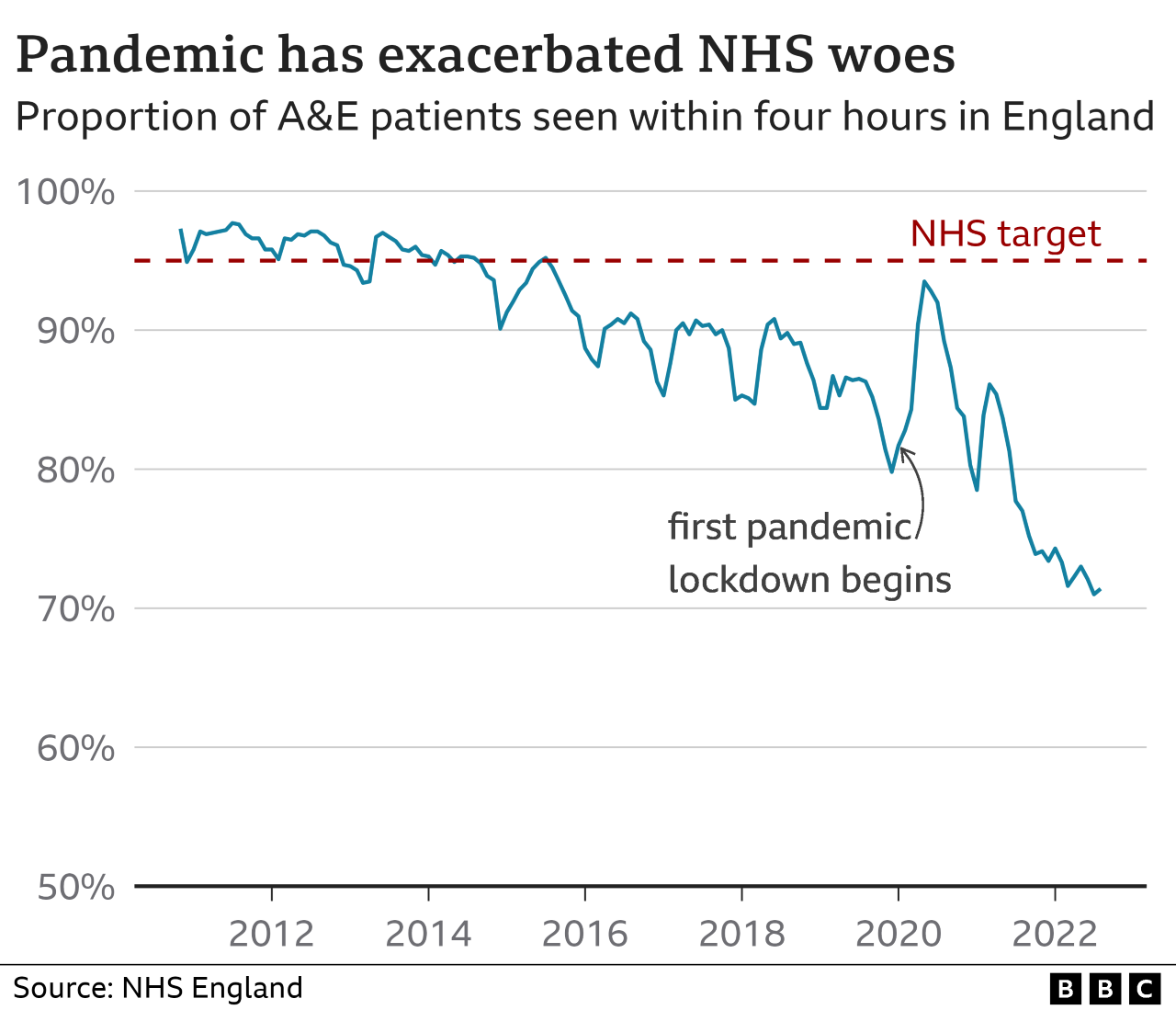
The pandemic has simply exacerbated the situation.
At the heart of it all is a lack of staff.
Close to one in 10 posts in the NHS are vacant, with the UK (this is not an England-only problem) having fewer doctors and nurses per head of population than many other European nations.
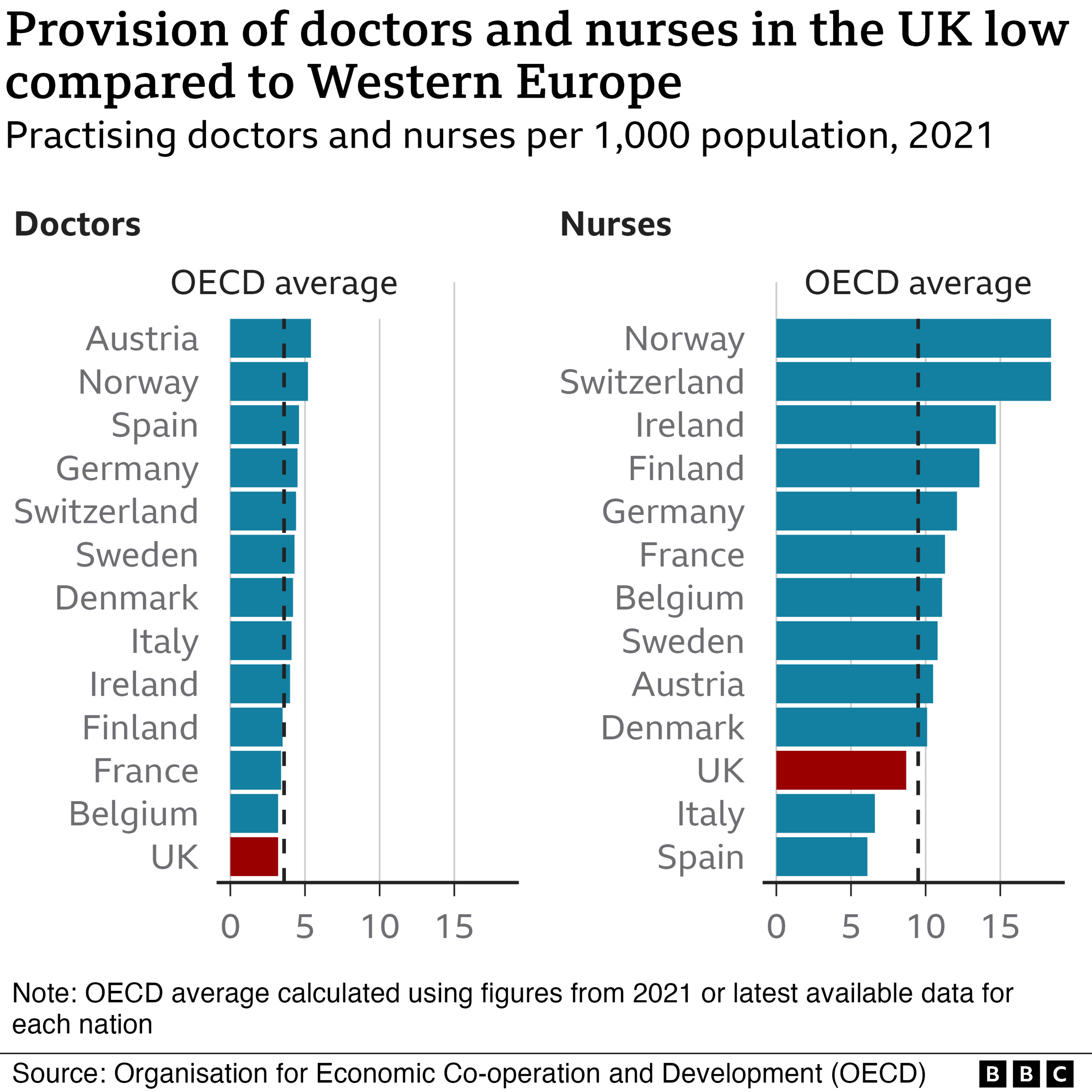
Addressing this is not easy and cannot be done overnight. It takes five years to train a doctor, three a nurse, which is why there is a big push on international recruitment at the moment.
So what has been announced largely focuses instead on making more use of existing staff.
GP recruitment drive failing
To free up GP appointments, pharmacists are being asked to take on some of their workload, while funding rules are being relaxed to allow GPs to use more of their money to recruit senior nurses.
That's because the drive to recruit more GPs has hit the buffers - the number of permanent GPs has actually dropped in recent years, leaving the plan for 6,000 more by 2024 in tatters.
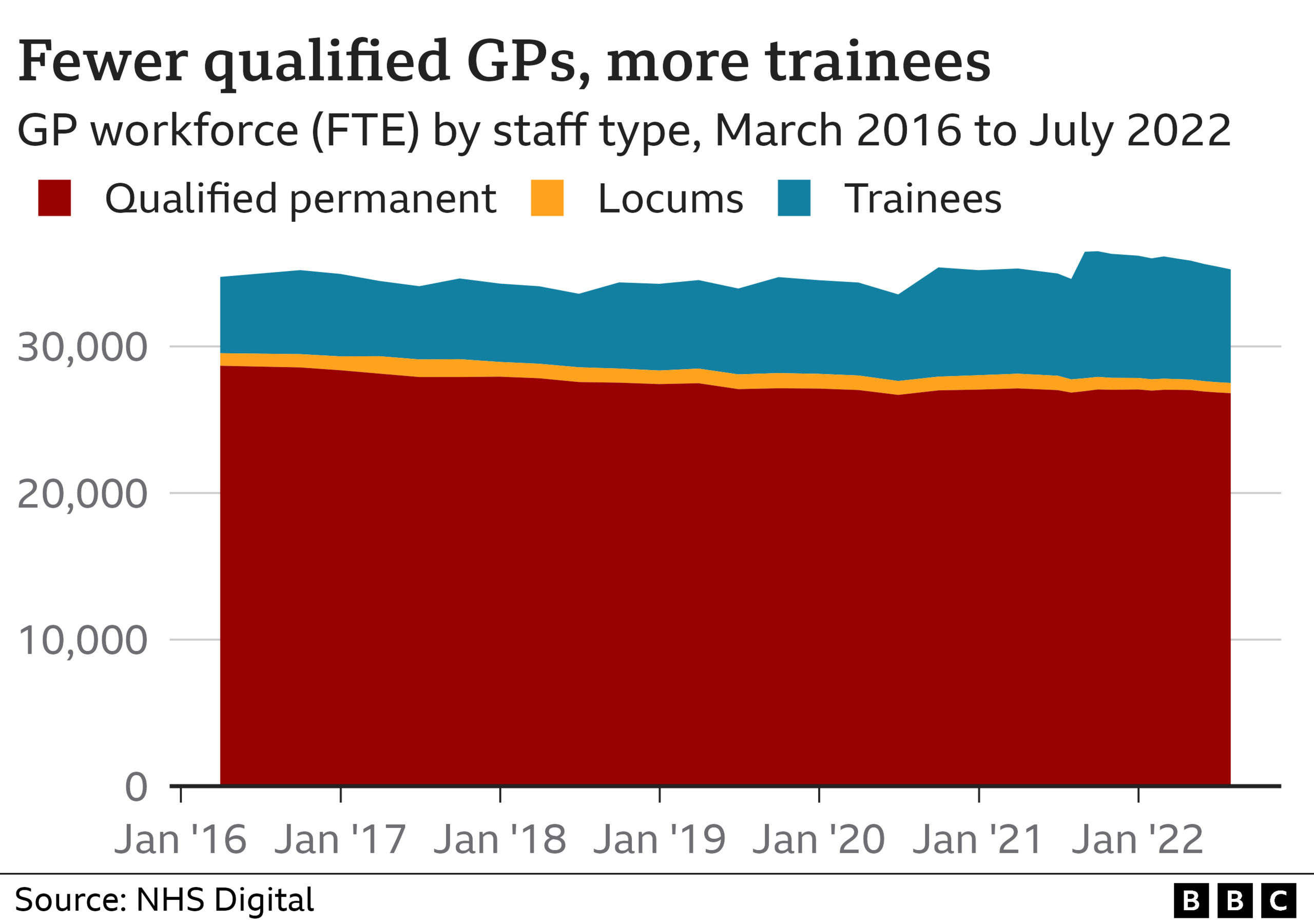
But there is nothing in the plan about where these new senior nurses are going to come from, which is why the Royal College of GPs has been so dismissive.
It is a similar story for hospitals services, where accident-and-emergency waits, ambulance response times and the backlog in routine treatments such as knee and hip replacements have all worsened in recent years.
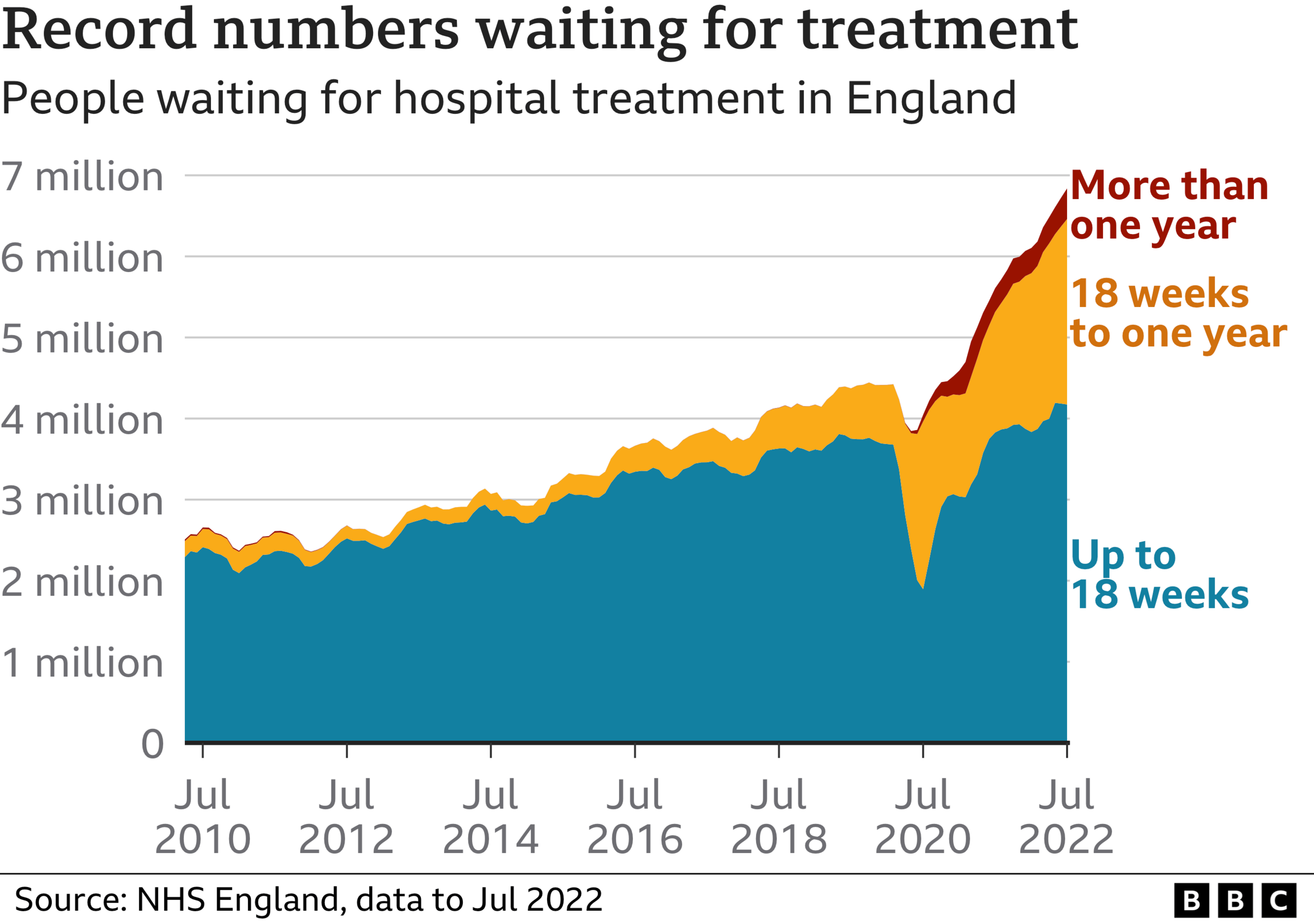
Ms Coffey has said she will be looking at pension rules. Currently, senior doctors who take on extra shifts can face high tax bills if their earnings go above the pension cap.
A sticking plaster?
She is also introducing a £500m fund to address another key problem - most patients who are medically fit to leave hospital cannot be discharged immediately because of the lack of support in the community.
Local areas will decide how to spend the money and it could allow hospitals to pay for extra help at home for patients who need it.
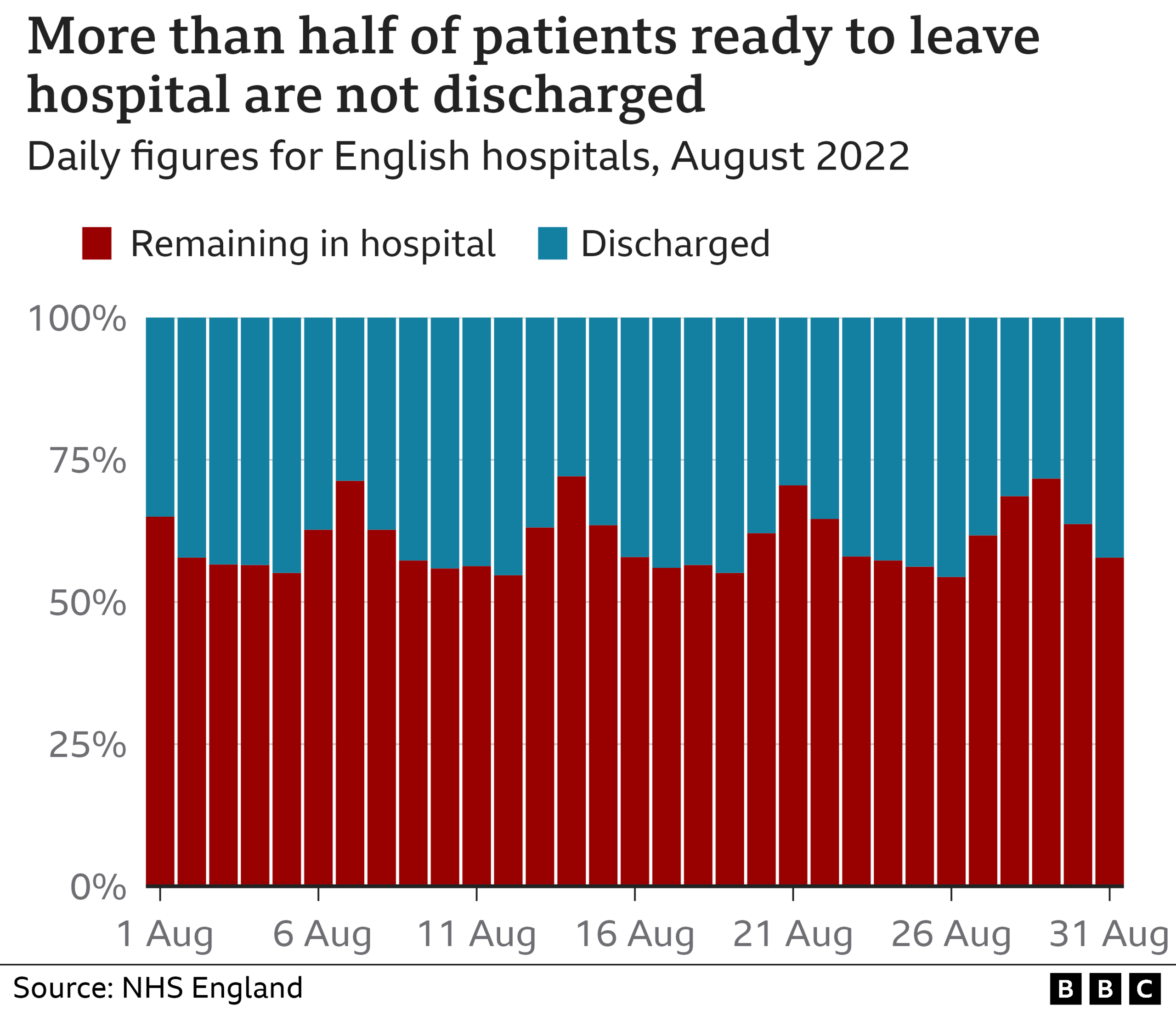
But it amounts to little more than a sticking plaster and is an approach already used to relieve the pressure during the pandemic. The real issue is the care sector is short of staff, with even more vacancies than in the NHS.
The Health Foundation has estimated social care is nearly £8bn a year short of what it ideally needs, external, which is why the think tank criticised Ms Coffey's plan for "short-term fixes".
What the NHS wants
For years, the NHS has been asking for a workforce plan - some clear goals setting out how many staff are needed and how they are going to be trained and recruited.
The wheels have been set in motion several times but a combination of Covid and changes in government has meant publication of the plan has been put back and back.
The latest date talked about was October - but that now seems to be slipping.
Until that plan is published - and action taken off the back of it - the NHS will not be happy.
Related topics
- Published5 July 2023

- Published5 July 2022

